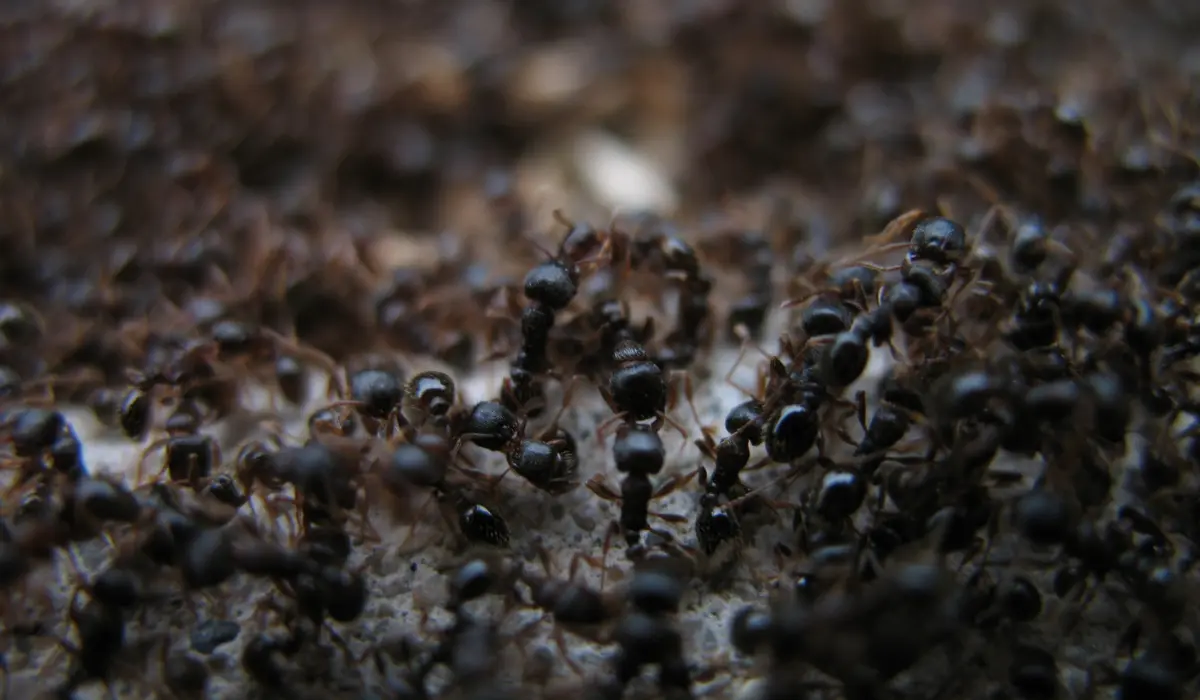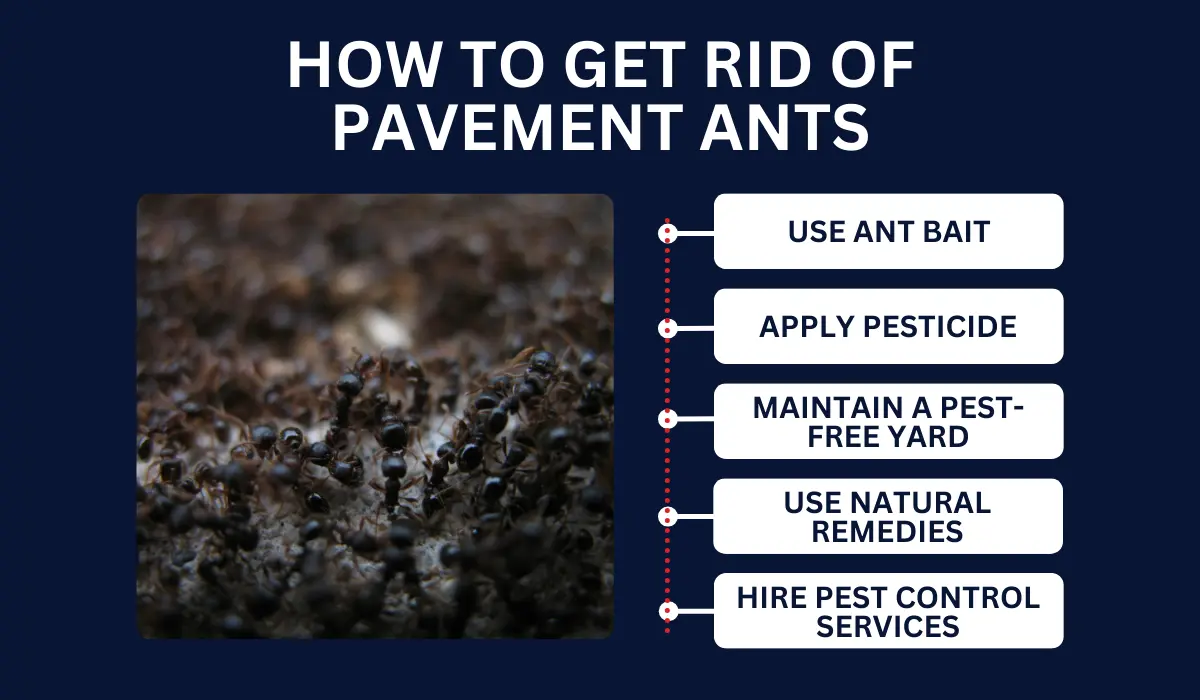
Did you know that pavement ants are one of the most common ants found in Louisiana? These small, industrious creatures are known for nesting between pavement cracks, causing issues for homes and businesses.
What can you do to manage them? Keep reading to learn all about pavement ants and how to deal with their pesky presence.
Key Takeaways
- Pavement ants in Louisiana are recognized by their reddish-brown color and grooved bodies, often nesting under sidewalks and building foundations.
- These ants have a diverse diet and adapt well to urban environments, making them persistent nuisances in homes and buildings.
- Effective control methods include using ant baits, applying EPA-approved pesticides, maintaining a clean yard, and employing natural deterrents.
- Professional pest control services offer tailored solutions for persistent infestations to manage and prevent future pavement ant problems effectively.
WHAT ARE PAVEMENT ANTS?
Pavement ants are common in the urban areas of Louisiana. They often create colonies beneath sidewalks, driveways, and building foundations.
Physical Characteristics
Generally, pavement ants are reddish-brown, but their color can vary. This appearance sets them apart from common ants, like the darker-colored carpenter ants and odorous house ants. They feature a segmented body with a notably grooved thorax and head.
Pavement ants have bent antennae rather than straight ones like some other species. Like Pharaoh ants, they also have stingers, although their stings do not harm most people.
Behavior and Life Cycle
Pavement ants are known for their tendency to form trails and forage in large groups. They can sometimes be seen swarming, especially when seeking food or establishing new colonies.
These species of ants mate during “nuptial flights,” where swarmers (winged ants) leave the nest to form new colonies. Ant colony formation is rapid, making them resilient in urban settings.
Diet and Habitat
Pavement ants prefer a varied diet, including sweets, proteins, and greasy substances. They’re often found in kitchens and other areas where food is present. Unlike red imported fire ants, which build mounds, pavement ants nest under hard surfaces.
They adapt well to urban environments by nesting underneath sidewalks, driveways, and foundations. This preference differentiates them from moist-loving types of ants, such as crazy ants and Argentine ants.
SIGNS OF A PAVEMENT ANT INFESTATION
Pavement ants can be nuisance pests, popping up in large numbers around homes and buildings. Their infestations are often easy to spot if you know what to look for.
Here are the signs you should be aware of:
| Signs | Description |
|---|---|
| Ant Trails | Lines of ants moving to and from a food source or nest |
| Nests in Pavement Cracks | Small piles of dirt or sand near pavement or concrete cracks |
| Swarms of Winged Ants | Groups of winged ants during warmer months |
| Ant Activity Around Food | Frequenting kitchen, pet food, and garbage areas |
| Piles of Debris | Accumulations of soil, wood fragments, and other materials in areas like wall voids |
HOW TO GET RID OF PAVEMENT ANTS

If you’re facing a pavement ant problem, you can use several effective strategies to regain control. Consider these strategies as part of your treatment plan for a pest-free home.
Use Ant Bait
Ant baits can be effective in eliminating the entire colony. Place the bait near ant trails. Once the ants take the bait back to the nest, they kill the colony.
Apply Pesticide
For larger infestations, EPA-approved pesticides can be useful. Sprays and granules are available, targeting ants directly. Always follow safety instructions when using pesticides.
Maintain a Pest-Free Yard
Keep your yard clean and free of debris. Pavement ants often nest in outdoor spaces. Regular lawn maintenance and cleaning around paved areas help keep ants at bay.
Use Natural Remedies
Natural remedies like vinegar or essential oils can repel ants. Spraying these solutions around entry points and trails can effectively deter ants.
Hire Pest Control Services
Sometimes, professional help is the best solution. Pest control services have specialized treatments to handle severe infestations. Their trained ant exterminators provide both immediate and long-term solutions.
HOW TO PREVENT FUTURE INFESTATIONS
To prevent future infestations of pavement ants, it’s essential to implement effective home maintenance and landscaping practices.
Here’s how you can make your home less inviting for year-round protection:
- Seal gaps around doors, basements, and patios with caulk or weather stripping.
- Ensure all food sources are stored in airtight containers.
- Clean up spills and crumbs promptly to avoid attracting ants.
- Remove aphids, as they produce honeydew, which attracts ants.
- Keep mulch well-managed and away from the foundation.
- Keep pet food dishes indoors and clean up after pets immediately.
- Fill any visible nesting sites with soil and compact it.
IS IT TIME TO CALL THE EXPERTS?
Sometimes, DIY pest control solutions aren’t enough to handle a pavement ant infestation in Louisiana. If you’ve tried home remedies and the ants keep coming back, it’s time to get pest control help.
Whether you’re in Baton Rouge or New Orleans, seeking expert help should be easy. For immediate intervention for a severe infestation, let Lajaunie’s ant control specialists tailor a solution that’s right for your home.